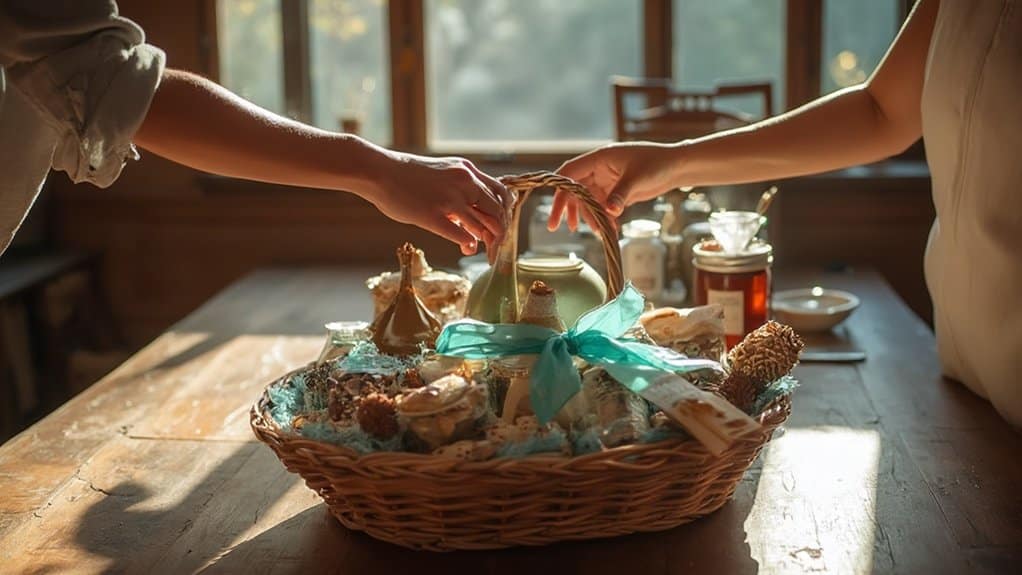As someone who's spent two decades helping newcomers settle in Uruguay, I can tell you our social customs run deeper than what meets the eye.
The blend of European heritage and South American warmth creates distinct social patterns that shape our daily lives.
Picture this: a business meeting starts with 15 minutes of personal conversation over mate, our traditional herbal drink, before any deals are discussed.
These unspoken protocols matter.
I've watched countless clients navigate their way through our social landscape, learning that timing, personal space, and social cues work differently here.
Business meetings typically start late by North American standards – showing up exactly on time might mean waiting alone for 20 minutes.
The greeting ritual of a kiss on the cheek applies even in professional settings, while maintaining eye contact during conversations signals respect and attention.
Living in Uruguay means embracing these subtle yet significant customs.
The mate ritual, for instance, follows specific rules: never say "gracias" until you're finished drinking, always pass the mate back to the server, and respect the order of sharing.
Through my years of guiding newcomers, I've seen how mastering these nuances transforms casual acquaintances into lasting friendships and successful business relationships.
Key Takeaways
- Greetings involve right cheek touches with kissing sounds, followed by genuine inquiries about well-being, with standing up to greet others.
- Personal space is closer than in many cultures, with gentle touches during conversation being normal and accepted.
- Meals are social occasions starting late (lunch at 2 PM, dinner at 9 PM), with "Buen provecho" marking the beginning.
- Mate sharing is a fundamental social ritual that builds connections and is present in both work and social settings.
- Punctuality and formal scheduling are important in business settings, while social gatherings embrace a more relaxed time approach.
Meeting and Greeting Friends

Let me share the proper way we greet each other here in Uruguay – it's a beautiful reflection of our social fabric. Once you understand our customs, you'll find them natural and meaningful. Walking into a room means acknowledging everyone present, a practice that builds lasting connections in our community. These warm interactions help foster a community spirit and break down social barriers.
A proper greeting involves a gentle right cheek touch accompanied by a subtle kissing sound, followed by genuine inquiries about one's well-being. I've noticed that my international clients often appreciate learning that we stand to receive greetings as a sign of respect, unless we're actively engaged in something important. First-time meetings flow seamlessly when you introduce yourself right after this initial greeting.
Women always exchange cheek kisses – handshakes simply won't do. While men might occasionally opt for handshakes, they're not the norm in our culture. Having shown countless families around properties over the years, I've learned that maintaining eye contact and embracing our customary close physical proximity helps create trust and understanding. These practices have deep roots in our society and make Uruguay the warm, welcoming place it is.
Dining Rules and Customs
Let me share what dining truly means in my country. Meals in Uruguay are sacred social gatherings that reflect our deep-rooted traditions. We structure our days differently here – lunch typically starts at 2 PM, while dinner gatherings begin around 9 PM, following our natural cultural rhythm.
Our table etiquette stems from generations of tradition. Keep your hands visible on the table surface, avoid placing elbows on it, and always wait for your host's signal to begin eating. "Buen provecho" marks the start of every meal – it's a small gesture that carries significant cultural weight. Our special dairy products like queso fresco often grace the dining table.
The heart of Uruguayan dining lies in 'sobremesa' – those precious moments after the meal when we share mate and stories around the table. I've hosted countless asados where guests stayed for hours, sharing life experiences while the meat slowly cooked over hot coals. This isn't just about food; it's about building lasting connections through our time-honored dining customs. Each meal, from simple weekday dinners to elaborate weekend asados, weaves another thread into our social fabric.
Business Meeting Best Practices

Let me walk you through the essentials of business meetings in Uruguay. Plan your gatherings at least two weeks ahead through formal channels – we value proper scheduling as much as the meeting itself. Though our culture can be flexible with time, arriving punctually sets the right professional tone and earns respect from your counterparts.
Getting your materials ready makes all the difference. I've learned through years of real estate negotiations that having bilingual business cards and documents shows cultural awareness and preparation. When dealing with international clients or partners, securing an experienced interpreter can help navigate subtle cultural nuances that might otherwise get lost.
The meeting dynamic follows our traditional business etiquette. Start by greeting the most senior person present – a custom deeply rooted in Uruguayan business culture. Remember that meetings focus on discussion and exchanging ideas rather than making final decisions. We appreciate sustained eye contact and genuine interest in personal connections before discussing business matters. From my experience closing major property deals, building rapport through casual conversation creates trust and opens doors for meaningful negotiations.
Business decisions here reflect our collaborative culture. Most outcomes emerge from thorough discussions and require various levels of approval. As a local professional, I've observed that what might seem like hesitation – quiet moments or indirect responses – often indicates thoughtful consideration rather than rejection. Keep your tone formal with senior executives while maintaining warmth, and be ready to clarify points as needed. This balanced approach aligns perfectly with our way of doing business.
Personal Space and Social Touch
Living in Uruguay for over twenty years as a real estate agent has taught me that our approach to personal space reflects our warm, community-centered culture. My foreign clients often notice that conversations here naturally flow at a closer physical distance than they're used to. A gentle touch on the arm or shoulder serves as a genuine way to emphasize points during discussions. This openness extends to dating life, where public displays of affection are widely accepted and normal.
| Interaction Type | Expected Behavior | Cultural Impact |
|---|---|---|
| Greeting | Kiss on cheek, cuddle | Building trust |
| Conversation | Close proximity, touch | Shows interest |
| Public Settings | Physical affection ok | Social acceptance |
The physical boundaries that shape our social interactions stem from deep-rooted cultural values. My North American and European clients learn to embrace the customary cheek kiss and warm embrace – gestures that transform business relationships into lasting connections. Eye contact remains essential during conversations, signaling attentiveness and respect. Social gatherings showcase this dynamic perfectly, as people naturally form close-knit circles that enable casual touching and animated discussions. These customs aren't just social niceties; they're woven into our daily interactions, creating an environment where physical expressions of warmth strengthen both personal and professional relationships.
Gift-Giving Practices

Let me share what I've learned about gift-giving in Uruguay after 20 years of welcoming international clients to our shores. The exchange of presents here weaves together respect, friendship, and our rich cultural tapestry – a beautiful mix of indigenous, European, and African traditions. Our gaucho heritage significantly influences our gift-giving culture, emphasizing hospitality and generosity in every exchange.
The key to successful gift-giving lies in understanding our core values. We present gifts using both hands, keeping the value reasonable and thoughtful. Our wrapping style tends to be elegantly understwoods, much like the practical spirit you'll find in our homes and businesses. My clients often ask what makes an ideal gift – mate sets and locally crafted leather goods hold special meaning in our culture.
Our gift-giving practices have evolved naturally with time, embracing both cherished traditions and fresh approaches. Special occasions like Día de la Amistad and Mother's Day blend time-honored customs with contemporary touches. Through my years of building relationships here, I've seen how genuine appreciation and meaningful connections matter more than the gift itself. A heartfelt "gracias" and recognition of the moment's significance complete the exchange perfectly.
Mate and Asado Traditions
Let me share with you the heart of Uruguayan social life through our cherished mate and asado traditions. These customs weave through every aspect of our society, from bustling city streets to tranquil countryside estates, creating unbreakable bonds between people.
The sight of Uruguayans carrying their mate gear – thermoses tucked under arms and gourds held close – tells our story. Statistics show we consume about 10 kilos of yerba mate per person each year, making it an essential part of daily life. A mate invitation opens doors to authentic connections, transforming strangers into friends through this simple yet meaningful ritual. This ancestral beverage has become such an integral part of the culture that it is officially recognized as Uruguay's national drink.
| Tradition | Rural Setting | Urban Setting |
|---|---|---|
| Mate | Shared during cattle roundups | Vital for workplace breaks |
| Asado | Wood-fired grills on estancias | Apartment building terraces |
| Social Impact | Extended family gatherings | Friend group bonding |
The art of asado brings its own magic to our culture. As a real estate professional, I've seen countless homes where the parrilla (grill) serves as the heart of the property. The asador's expertise shines through each carefully tended cut of meat, whether at an estancia's sprawling grounds or a cozy city terrace. That distinctive wood-smoke aroma signals not just a meal, but a celebration of our heritage, bringing families and communities together in shared appreciation of this time-honored tradition.




9 Responses
‘Buen provecho’ is a nice touch for meal times.
Thanks for sharing these customs.
Good to know how meetings work in Uruguay.
‘Punctuality and respect’ are important everywhere, really.
I appreciate the insights on greetings and meetings.
I never knew about the mate rituals before.
Interesting take on cultural differences.
‘Kiss on the cheek’ sounds friendly, I like it!
The personal space thing is quite different from what I’m used to.